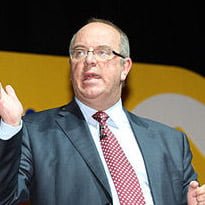NHS England puts IT in five year plans
- 23 December 2013

NHS England has warned that it will work with commissioners to impose “increasingly stringent sanctions” on provider organisations that fail to use the NHS Number as their primary patient identifier.
Use of the NHS Number as a primary identifier has been a goal of successive NHS IT strategies, dating back at least 20 years.
In draft planning guidance for 2014-15, issued last week, the commissioning board notes that it was also a key aim of its first guidance for the NHS, ‘Everyone counts’.
However, it says that a “significant number of providers are still not compliant” and it will “work with CCGs to secure immediate improvement.”
“Following that,” it adds, “our intention is to consider the possibility of introducing a range of increasingly stringent sanctions on providers, from contractual fines through to the withdrawal of contracts.”
The guidance argues that using digital technologies to deliver services in new ways, and improving the use of data, will be key features of new models of care, which it says must be introduced to ensure the sustainability of the health service.
Last summer, NHS England chief executive Sir David Nicholson warned that the gap between flat funding and rising demand that the NHS has been facing since 2008 could reach £30 billion by 2020 without fundamental change.
In response, he issued ‘A Call for Action’ to clarify the challenges and to try and secure clinical and public support for action to meet them. The guidance says that 250 Call for Action events have been held, from which five principles have emerged.
These are that a “completely new approach” to securing citizen involvement in the design of services is needed, and that new models must be developed for primary, integrated, urgent and emergency, and elective care.
The guidance sets out a number of steps that have already been taken in these areas.
For example, it says it wants to see progress on the new primary care services “provided at scale” that were announced by health secretary Jeremy Hunt, to co-ordinate the care of patients over 75 with a moderate long-term condition.
And it says it wants to see urgent and emergency care services moved to 40-70 centres, with specialist services further concentrated in just 15-30 services, as proposed in a report by NHS England medical director in response to the emerging ‘winter crisis.’
But it says that to move forward, more will need to be done. It says all commissioners should draw up five year transformation plans, with detailed proposals for delivery covering the first two years.
It also says these plans “must be explicit in dealing with the financial gap” and set out both the risks of not addressing it and plans for doing so.
NHS England also uses the guidance to set out the scale of the immediate financial challenge facing the NHS. It says secondary care providers will need to find efficiency savings of 4% in each of the next five years, as tariff prices are cut and costs increase at an escalating rate.
Despite this, it says the NHS must continued to “focus on the basics” such as quality and safety.
The CQC will issue its new “definitive quality ratings” for providers – dubbed an Ofsted-style rating system by politicians – in January, and commissioners will be expected to take “prompt action” on any rated ‘require improvement’ or ‘inadequate.’




